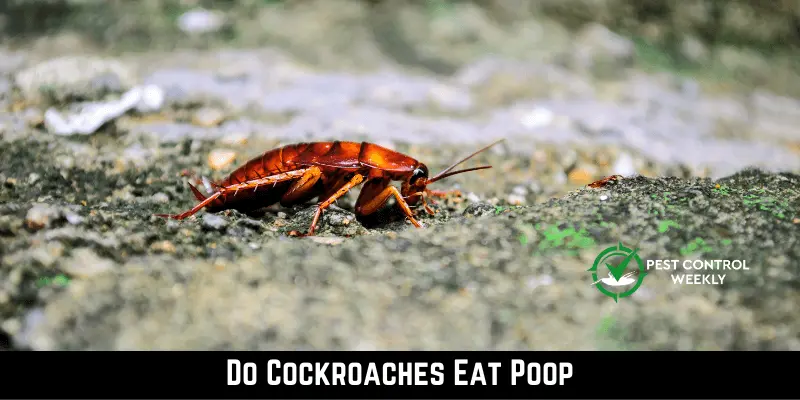Do you have a cockroach infestation in your home and want to know their eating habits? As cockroaches are omnivores, they can eat anything, including feces. Now, you may wonder; do cockroaches eat poop?
Yes, cockroaches can eat poop, including humans and other animals. No doubt, cockroaches love to eat food containing carbohydrates, glucose, and starch; poop is a rich source of vitamins, proteins, fats, and minerals that enable them to fulfill their nutrient requirements when they have nothing to eat.
Do you want to know more about cockroach poop and how to deal with it? If so, stay in touch till the end of the article to learn everything about it.
Are Cockroaches Attracted to Poop?
Yes, cockroaches are attracted to poops because of their high nutrient value. Usually, cockroaches are drawn to the poop of other animals like dogs, cats, birds, and mice, but they don’t eat germ-free things.
Cockroaches don’t have particular food preferences. They consume anything organic they come across, including feces. According to the Smithsonian Magzine, even though cockroaches can’t feed on feces, the smell of their waste attracts them to a particular area. Additionally, cockroaches are attracted to each other by chemical cues left behind by the bacteria in their intestines.
Moreover, they use their droppings to detect themselves from a distance. With this strategy, they can seek safety in numbers, bolstering the colony and ensuring its survival.
Reasons: Why Do Cockroaches Eat Poop?
Cockroaches consume feces because they are digestive wastes from the stomach and have food residue. As both humans and animals are omnivores, their feces include a variety of healthy nutrients, which cockroaches enjoy. Below are some most common reasons; why cockroaches eat poop.
- Protein: It is one of the most common nutrients present in human feces. Therefore, cockroaches eat human feces to get proteins.
- Diarrhea: Poor digestion can cause diarrhea, which contains salts, lipids, and water that cockroaches find appetising. Ingestion also occurs in cats, dogs, and mice that cockroaches find appealing.
- Subsistence: Cockroaches love to reside in outdoor and indoor sewerage systems. And once they enter them, they start eating feces to fulfill their nutrient values.
- Growth and Reproduction: As proteins are the main building blocks of the cockroach body, they use them for their growth and reproduction. While feces are rich in proteins, cockroaches consume them to obtain significant proteins.
- Due to taste: Cockroaches find feces tasty and tempting thus, they eat poops due to their inviting taste.
Do Cockroaches Consume Their Poop?
No, cockroaches usually don’t consume their feces except when starving and have nothing to eat. Cockroaches’ feces don’t have enough nutrients, so they don’t eat them for survival. Moreover, ingesting their feces significantly shortens their longevity.
Although many animals eat their waste, cockroaches can’t do so and depend on other feces to fulfill their requirements for fats, minerals, proteins, and vitamins. Nonetheless, cockroach nymphs are more likely to eat their waste than adults.
Does a Cockroach Consume Human Feces?
According to the Critical Reviews in Environmental Science and Technology Journal, human feces contains proteins, water, fats, fibers, and carbohydrates. Therefore, cockroaches tend to attract human feces to get all these nutrients. The only issue for cockroaches is that since we frequently use the bathroom, there is less food available for them to eat.
Thus, poorer nations with inadequate sanitation and toilet hygiene are more likely to have cockroaches. Moreover, human waste finishes into sewers and drainage systems and provides cockroaches with enough food to thrive. So, you should keep your bathrooms clean to keep away cockroaches.
Do Cockroaches Consume Animal Poop?
Yes, cockroaches eat animal waste to acquire sufficient nutrients. Here are some animals whose feces may attract cockroaches:
Dog Poop
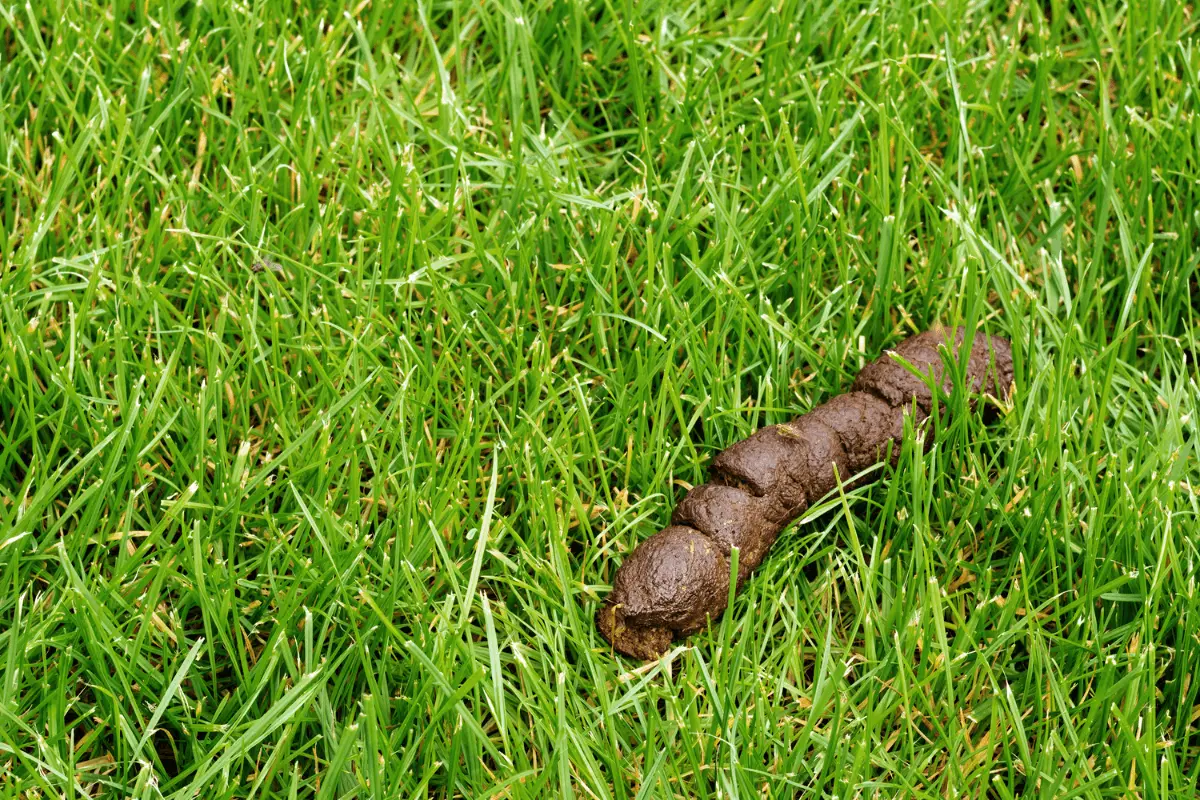
Cockroaches are drawn to dog excrement despite the dangers of the bacteria in it. If you keep a dog as a pet, you might leave its droppings in your garden, where cockroaches might feast. While inside the house, cockroaches seek out more nutritional, carbohydrate-rich items. As dog feces consists of all the essential nutrients cockroaches need, they eat them to fulfill their quest.
Rat Poop
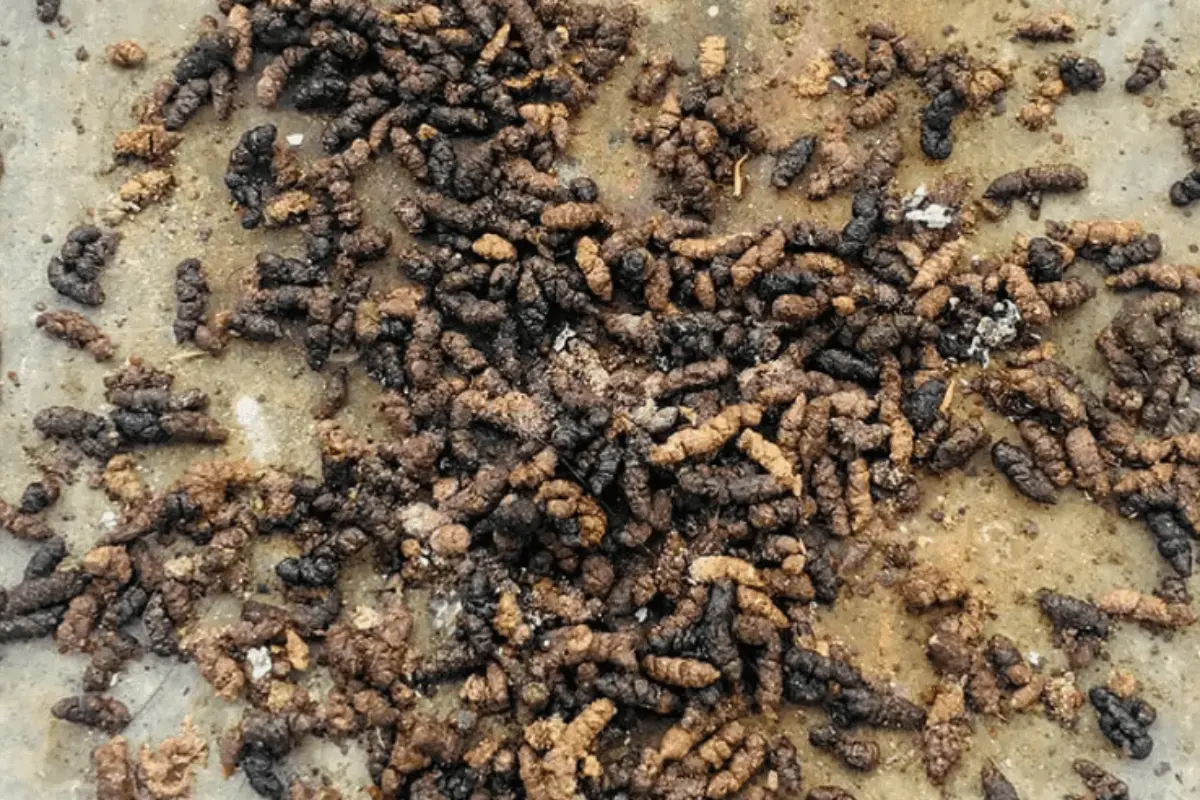
Despite being slimmer, rat droppings resemble cockroach poop in appearance. Even though they seem alike, cockroaches consume rat waste. Smoky-brown cockroaches choose rat droppings over dried animal remains. Therefore, if you have a rat infestation in your home, you may have the likelihood of cockroach presence.
Additionally, there is a symbiotic relationship between rat and cockroaches. Rats feed on cockroaches, while cockroaches consume their feces, which makes it difficult to eradicate these two pests simultaneously.
Cat Poop
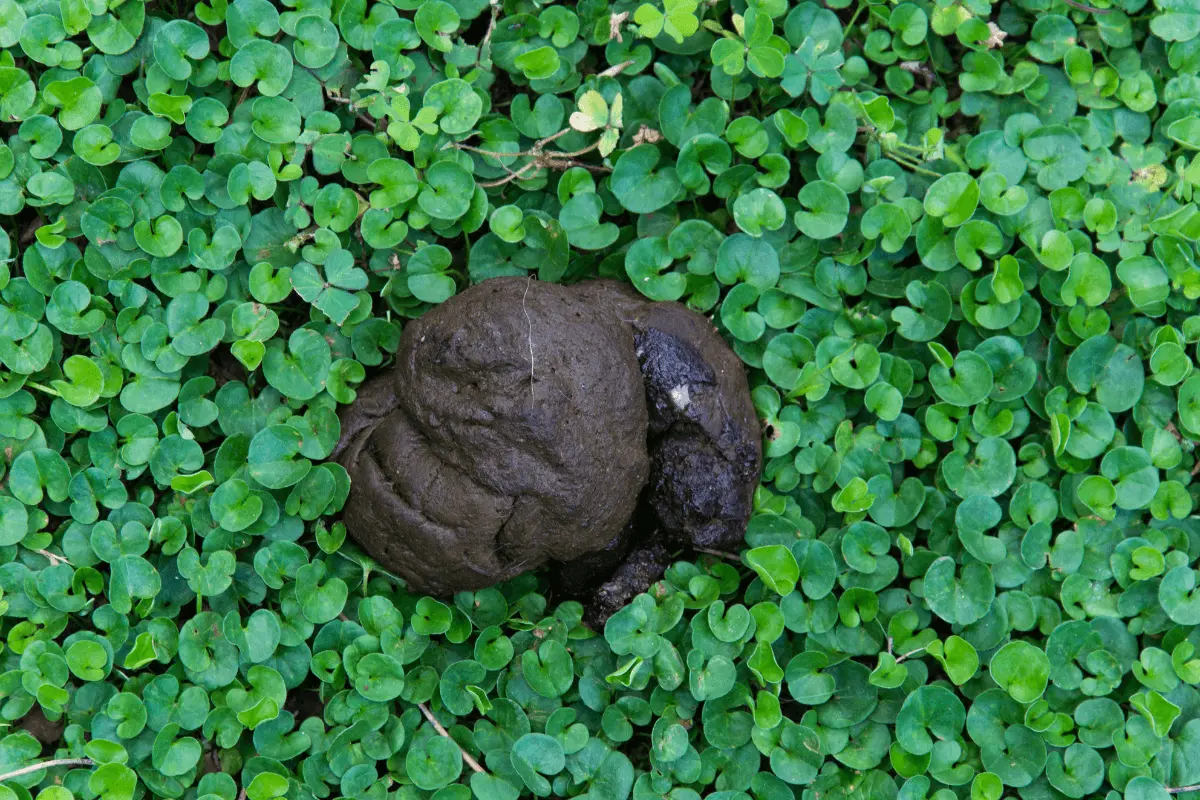
Cockroaches are attracted to the offensive stench of cat feces, especially in warm conditions. If your cat uses a litter box and you don’t clean it up right away, you may unintentionally lure cockroaches into your house.
To repel cockroaches from your cat litter box, clean it frequently and discard wastes immediately as you see them. Moreover, you can also use crystal litter to keep away cockroaches from your cat’s feces.
Bird Poop
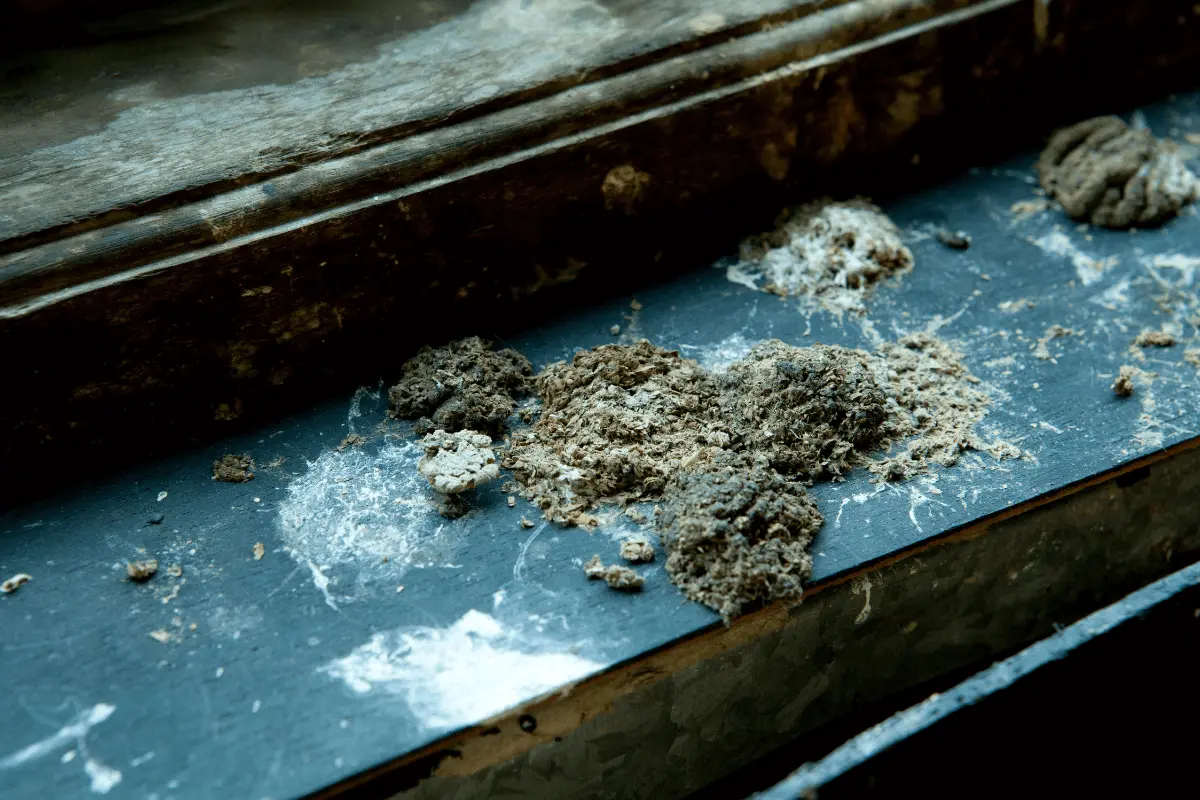
Cockroaches need nitrogen which is abundant in bird excrement, to build proteins, amino acids, and DNA. They consume foods high in nitrogen, such as bird feces, when their levels are low. As they poop, cockroaches release nitrogen into the environment, which helps trees and plants grow.
Cockroaches are afraid to go near birds because of the risk of being eaten. However, if you keep a pet bird, cockroaches eat bird feces inside their cage.
Is Cockroach Poop Harmful to Humans?
Yes, cockroach poop is dangerous to humans because it carries lethal pathogens, worms, molds, and bacteria that cause severe health issues, including diarrhea, vomiting, food poisoning, and dysentery. Moreover, these pathogens boost allergic reactions in children that threaten their health.
You may unintentionally consume cockroach feces with your food if your home has a significant cockroach infestation. Initially, after consuming cockroach feces, you may not experience any symptoms for a few hours. After some time, you may feel stomach pain, abdominal cramps, and nausea. If these symptoms last for two days, seek immediate medical care.
How to Remove Cockroach Poop?
Since cockroach poop contains numerous pollutants, you should remove it using gloves, a mask, and a respirator. They can cause severe health problems, from allergies to infection. You can remove cockroaches poop by the following steps:
Quick Steps
- Firstly, take the required precautions and identify the locations of cockroach droppings, including your storage rooms, bathrooms, and laundry rooms.
- After that, make a solution of hot water and soap or use a pesticidal spray in the suspected areas of a cockroach infestation.
- During the cleaning procedure, put the waste in disposable plastic bags.
- Moreover, you can clean the infested areas using a vacuum with HEPA filters to remove cockroach droppings.
- Besides removing cockroach poop, these HEPA filters eradicate allergens.
Final Verdict
Cockroaches are the most common household pests and may cause severe health problems by contaminating your food with their feces. They can eat the waste of humans and animals, such as cats, dogs, birds, and mice to satisfy their nutritional demands.
Although cockroaches prefer starchy and sweet food, they consume feces to get enough proteins, vitamins, fats, and minerals. However, due to less nutritional content, they avoid eating their poops.
To remove cockroaches and other animal feces, you should clean your home regularly and let yourself free from health issues.
References
(2015) The Characterization of Feces and Urine: A Review of the Literature to Inform Advanced Treatment Technology, Critical Reviews in Environmental Science and Technology,45:17, 1827-1879.
